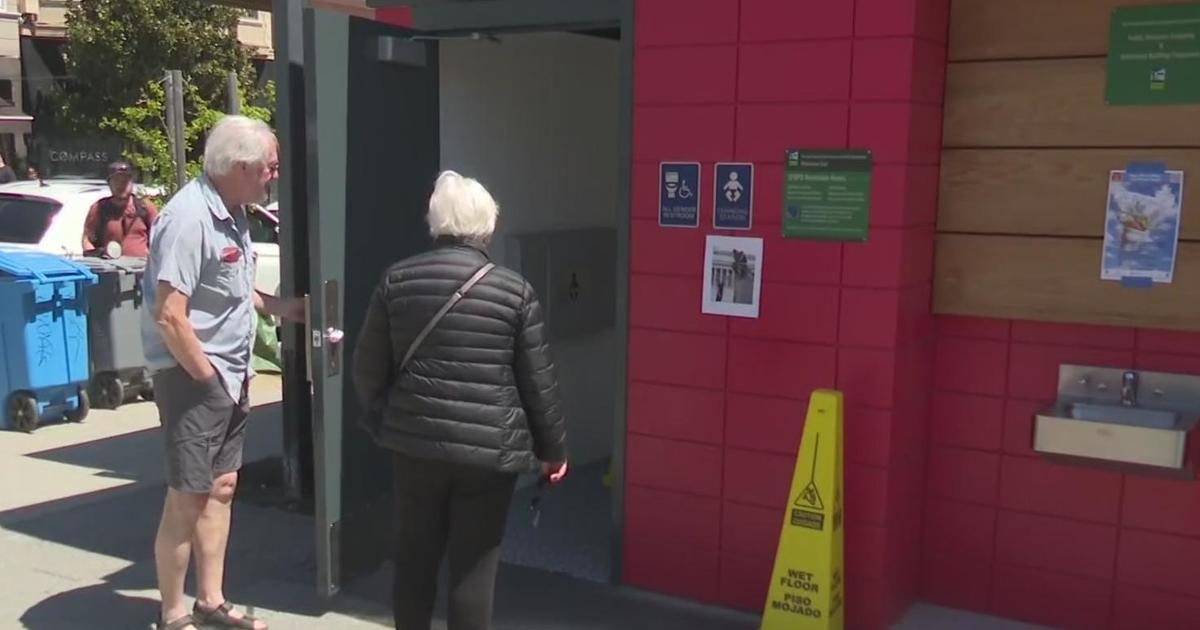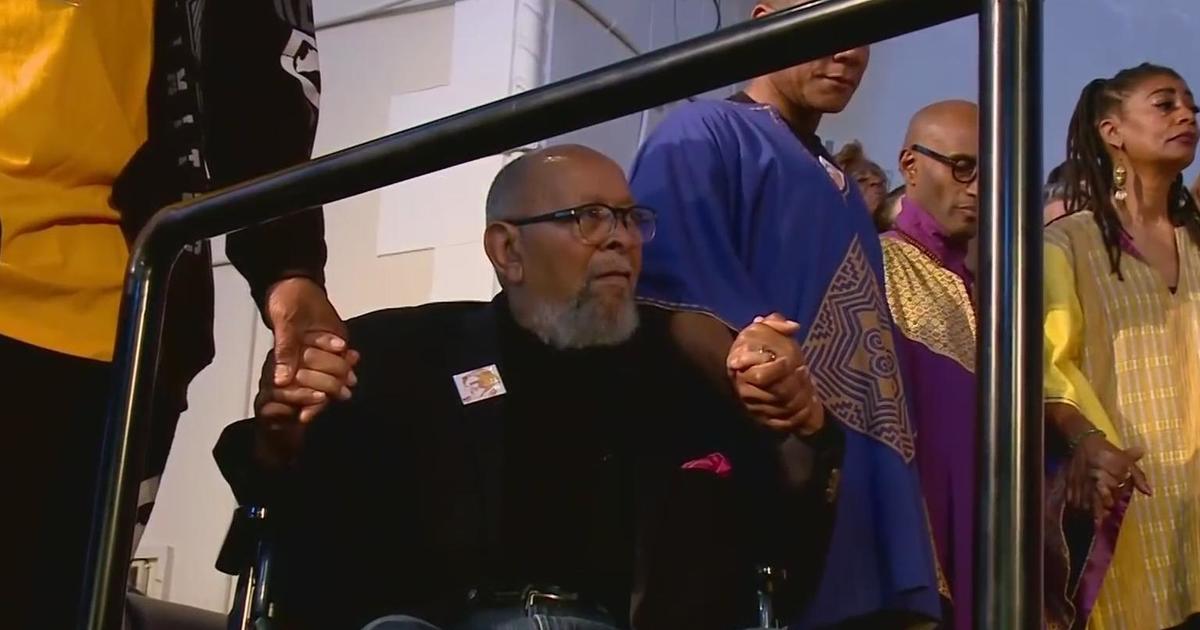Arguments Set For Tuesday Over Trump Travel Ban
SAN FRANCISCO (CBS SF) -- A federal appellate court has scheduled telephone oral arguments for Tuesday afternoon in a lawsuit over President Trump's travel and refugee ban.
The San Francisco-based 9th U.S. Circuit Court of Appeals will hear from lawyers from the federal government and states suing Trump.
The oral argument scheduled for Tuesday, February 7, at 3 p.m. will be available for the public to view via a live stream through the court's public website.
Monday afternoon, the Justice Department filed a brief with a federal appeals court in support of the president's travel and refugee ban.
The Department of Justice submitted its brief just before the 3 p.m. deadline Monday, arguing, "The executive order is a lawful exercise of the President's authority over the entry of aliens into the United States and the admission of refugees."
Other points the government made in the 15-page brief included:
- National security issues are the sole province of the President, not the courts.
- The order does not discriminate by religion, just country of origin.
- All of the countries at issue were deemed sponsors of terror by prior administrations.
RELATED: Read The Department Of Justice Filing
A federal judge in Washington state put the order on hold Friday. Federal government lawyers say the ruling by the judge, James Robart, was overly broad and should be overruled.
It was not immediately clear when the 9th Circuit might rule, but the legal fight may ultimately reach the U.S. Supreme Court.
Of the three judges at the 9th Circuit Court of Appeals assigned the case, one was appointed by Jimmy Carter, one by George W. Bush and the third by Barack Obama.
Earlier Monday, attorneys general from 17 states and the District of Columbia urged the federal appeals court to uphold a lower court judge's stay on President Donald Trump's travel ban.
The 23-page friend of the court brief was filed Monday with the 9th U.S. Circuit Court of Appeals by attorneys general from California, Connecticut, Delaware, Washington, D.C., Illinois, Iowa, Maine, Maryland, Massachusetts, New Mexico, New York, Oregon, Pennsylvania, Rhode Island, Vermont and Virginia.
RELATED: Read The Friend Of Court Brief
The officials claim Trump's executive order targeting refugees and nationals from seven predominantly Muslim countries hurts their states' economies. They said it also disrupts education and medical services and violates First Amendment-protected religious liberties.
The filing is in support of a lawsuit filed by attorneys general from Washington and Minnesota that was granted by U.S. District Court Judge James Robart, who ordered that the ban be lifted nationwide.
The Trump Administration asked for an emergency order from the 9th Circuit to reinstate the ban, but the court rejected that appeal early Sunday.
• ALSO READ: Apple, Google, Facebook Join 90+ Tech Companies Against Trump's Ban
The rapid-fire legal maneuvers by the two states were accompanied by a declaration filed by John Kerry and Madeleine Albright, former secretaries of state, along with former national security officials under President Barack Obama. They said Trump's ban would disrupt lives and cripple U.S. counterterrorism partnerships around the world without making the nation safer.
"It will aid ISIL's propaganda effort and serve its recruitment message by feeding into the narrative that the United States is at war with Islam," according to the six-page declaration filed in court.
"Blanket bans of certain countries or classes of people are beneath the dignity of the nation and Constitution that we each took oaths to protect," the declaration later added.
The technology industry also argued against the ban, contending it would harm their companies by making it more difficult to recruit employees. Tech giants like Apple and Google, along with Uber, filed their arguments with the court late Sunday.
The next opportunity for Trump's team to argue in favor of the ban will come in the form of a response to the Washington state and Minnesota filings. The 9th Circuit ordered the Justice Department to file its briefs by 6 p.m. EST Monday. It had already turned down a Justice request to set aside immediately a Seattle judge's ruling that put a temporary hold on the ban nationwide.
That ruling last Friday prompted an ongoing Twitter rant by Trump, who dismissed U.S. District Court Judge James Robart as a "so-called judge" and his decision "ridiculous."
Trump renewed his Twitter attacks against Robart on Sunday. "Just cannot believe a judge would put our country in such peril. If something happens blame him and court system. People pouring in. Bad!" He followed with another tweet saying he had instructed the Homeland Security Department to check people coming into the country but that "the courts are making the job very difficult!"
The government had told the appeals court that the president alone has the power to decide who can enter or stay in the United States, an assertion that appeared to invoke the wider battle to come over illegal immigration.
Congress "vests complete discretion" in the president to impose conditions on entry of foreigners to the United States, and that power is "largely immune from judicial control," according to the court filing.
Sen. Dianne Feinstein, the top Democrat on the Judiciary Committee, predicted the appeals court would not have the last word. "I have no doubt that it will go to the Supreme Court, and probably some judgments will be made whether this president has exceed his authority or not," she said.
In his ruling, Robart said it was not the court's job to "create policy or judge the wisdom of any particular policy promoted by the other two branches," but to make sure that an action taken by the government "comports with our country's laws."
The Twitter attacks on Robart - appointed by President George W. Bush - prompted scolding from fellow Republicans as well as Democrats.
"We don't have so-called judges," said Sen. Ben Sasse, R-Neb. "We don't have so-called senators. We don't have so-called presidents. We have people from three different branches of government who take an oath to uphold and defend the Constitution."
Trump's order applied to Iraq, Syria, Iran, Sudan, Libya, Somalia and Yemen - Muslim-majority countries that the administration said raise terrorism concerns. The State Department said last week that as many as 60,000 foreigners from those seven countries had had their visas canceled. After Robart's decision, the department reversed course and said they could travel to the U.S. if they had valid visas.
The department also advised refugee aid agencies that refugees set to travel before Trump signed his order would now be allowed in.
The Homeland Security Department no longer was directing airlines to prevent visa-holders affected by Trump's order from boarding U.S.-bound planes. The agency said it had "suspended any and all actions" related to putting in place Trump's order.
Feinstein spoke on Fox and Sasse was interviewed by ABC.
© Copyright 2017 The Associated Press. All Rights Reserved. This material may not be published, broadcast, rewritten or redistributed.



